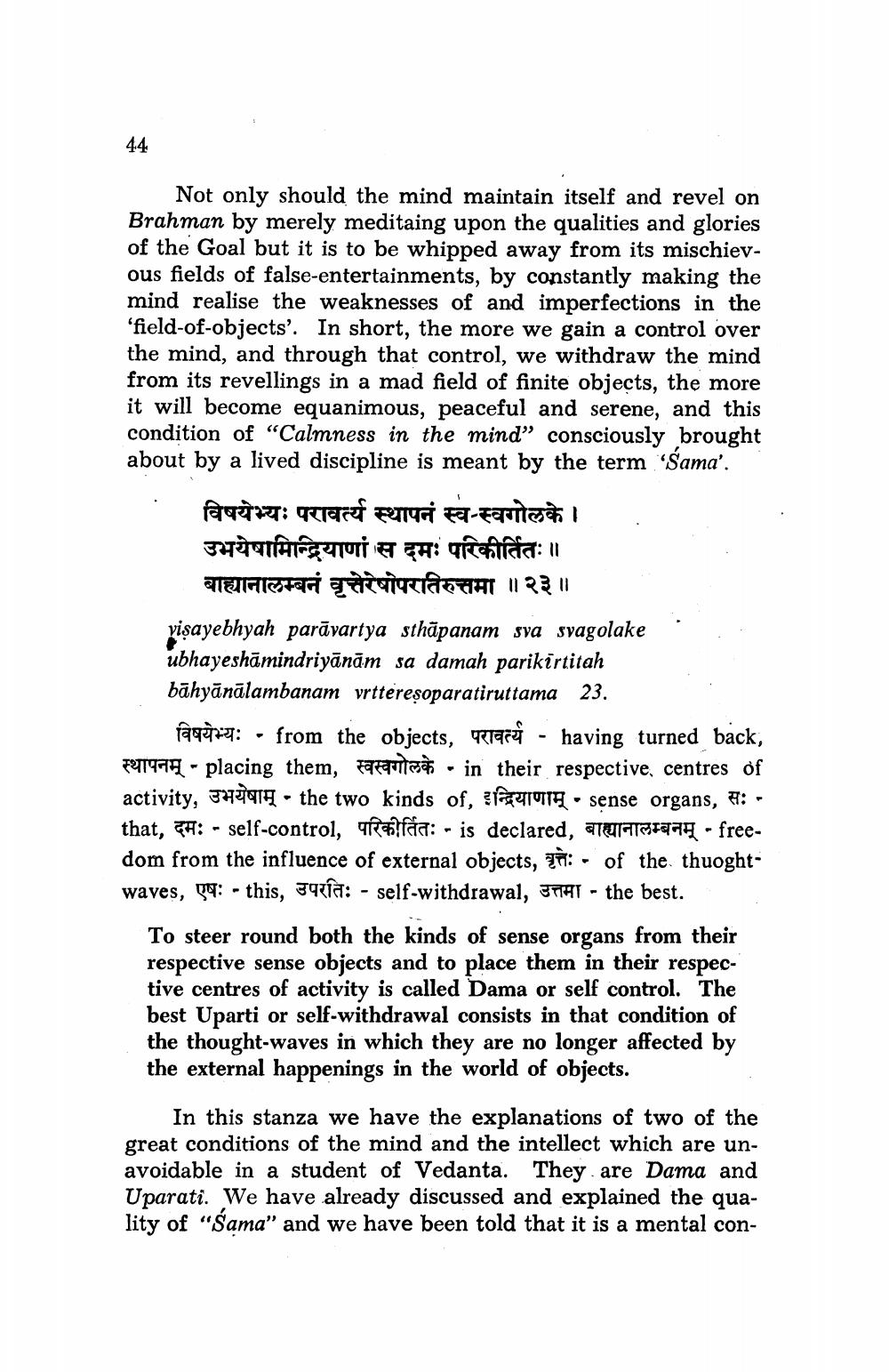________________
4.4
Not only should the mind maintain itself and revel on Brahman by merely meditaing upon the qualities and glories of the Goal but it is to be whipped away from its mischievous fields of false-entertainments, by constantly making the mind realise the weaknesses of and imperfections in the 'field-of-objects'. In short, the more we gain a control over the mind, and through that control, we withdraw the mind from its revellings in a mad field of finite objects, the more it will become equanimous, peaceful and serene, and this condition of "Calmness in the mind” consciously brought about by a lived discipline is meant by the term "Sama'.
विषयेभ्यः परावर्त्य स्थापनं स्व-स्वगोलके । उभयेषामिन्द्रियाणां स दमः परिकीर्तितः॥
बाह्यानालम्बनं वृत्तेरेषोपरतिरुत्तमा ॥२३॥ visayebhyah parāvartya sthāpanam sva svagolake . ubhayeshāmindriyānām sa damah parikīrtitah bāhyānālambanam vrtteresoparatiruttama 23.
विषयेभ्यः • from the objects, परावर्त्य - having turned back, FA1997 - placing them, Fatuitaset in their respective, centres of activity, उभयेषाम् - the two kinds of, इन्द्रियाणाम् - sense organs, सः । that, दमः - self-control, परिकीर्तितः - is declared, बाह्यानालम्बनम् - freedom from the influence of external objects, TT: - of the thuoghtwaves, 39 - this, 59cía: - self-withdrawal, STIAT - the best.
To steer round both the kinds of sense organs from their respective sense objects and to place them in their respective centres of activity is called Dama or self control. The best Uparti or self-withdrawal consists in that condition of the thought-waves in which they are no longer affected by the external happenings in the world of objects.
In this stanza we have the explanations of two of the great conditions of the mind and the intellect which are unavoidable in a student of Vedanta. They are Dama and Uparati. We have already discussed and explained the quality of "Šama" and we have been told that it is a mental con




